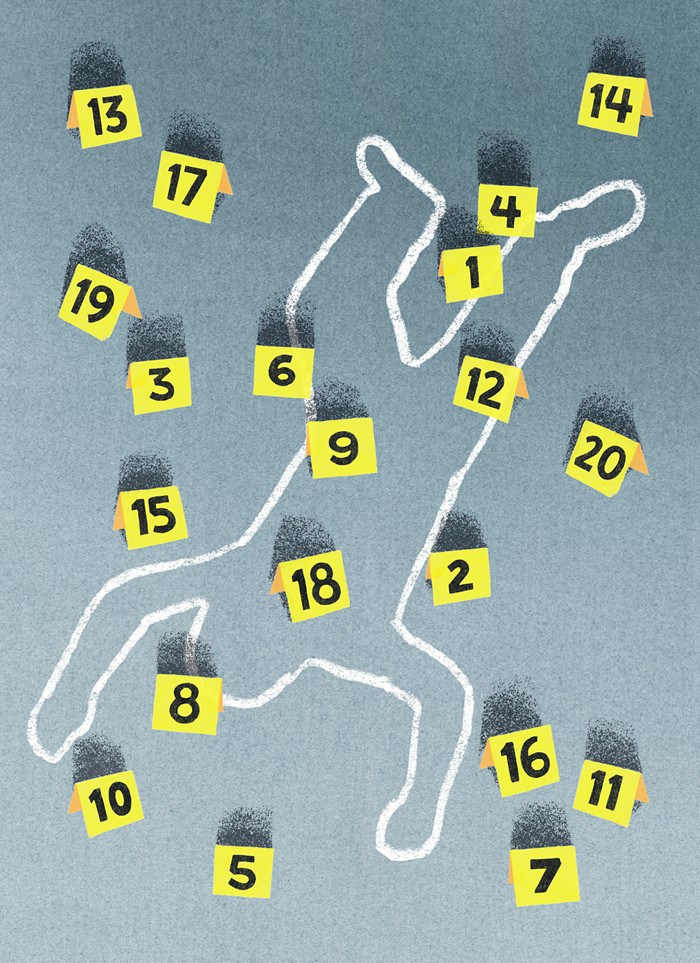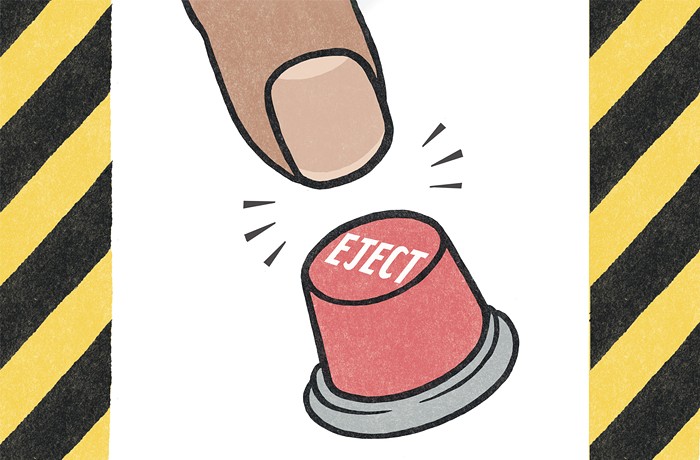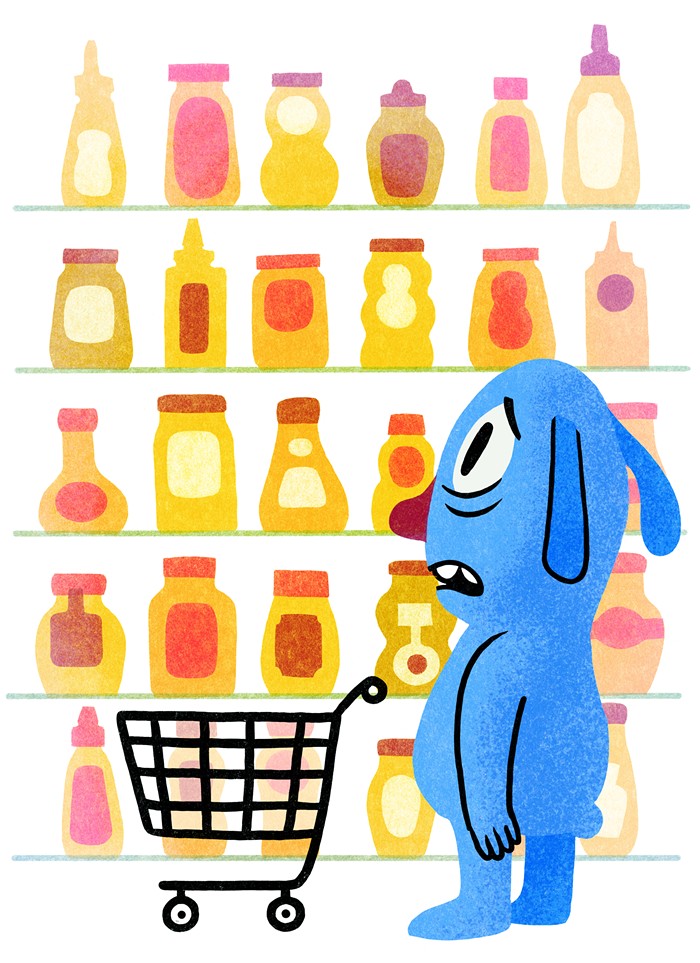I'm a 31-year-old cis man married to a 33-year-old non-binary partner, and our relationship has always been very vanilla. Over the past few years, I’ve discovered that I'm a kinky person, with a particular interest in both domination and submission. It took me a long time to summon the courage to bring this up with my spouse, as they have a cocktail of factors that could complicate play around power dynamics. This includes a history of trauma and sexual abuse, anxiety, body image, and self-esteem issues, and residual religious guilt. In the past, even discussing sex and sexuality in the abstract has been fraught. But our first conversation went surprisingly well. My spouse is cautiously open to exploring submission, and they want to continue the conversation. I have real optimism that centering consent, boundaries, and communication in D/s play might actually make sex feel safer for them. And I hope...
Want to read the rest and get in on the comments? Subscribe now to get every question, every week, the complete Savage Love archives, access to comments, special events, and much more!
So, now I'm the dog that caught the car and I'm terrified of messing this up. What advice would you give to gently ease into D/s play from a vanilla relationship? Can you recommend any books or podcasts that approach this kink at a firmly JV level and center safety and consent? My spouse is a reader and an academic at heart, and that might be a way to explore the idea from within their comfort zone.
Don't Overwhelm My Spouse
“Let me address the elephant in the room right away,” said Rena Martine. “Why on earth would a survivor of sexual trauma actually want to engage in D/s sex?”
Martine is a sexual intimacy coach who has helped couples explore BDSM and other forms of erotic power exchange. She’s also a former sex crimes prosecutor, which makes her particularly sensitive to issues faced by survivors of sexual assault and abuse.
“When it comes to trauma, there’s a concept known as ‘restaging,’” said Martine, “which means the trauma survivor takes a situation where they felt powerless and ‘restages’ it, so they’re actually in the director’s chair and choosing to give up some of that control.”
While BDSM isn’t therapy, some people who have submissive desires and traumatic sexual histories find giving up control to a trusted partner empowering and low-key therapeutic. Instead of control being something an untrustworthy abuser took from them, control becomes a precious thing they loaned to someone they could trust. And when they handed it over, they knew it would be returned, either at a set time or immediately if the sub used their safe word.
“Research by Dr. Justin Lehmiller tells us that victims of sex crimes are actually more likely than nonvictims to fantasize about almost all aspects of BDSM,” added Martine. “Anyone who’s curious about the science of sexual fantasies should read his book, Tell Me What You Want. And Holly Richmond’s Reclaiming Pleasure is a great starting point for any sexual assault survivor.”
Before you attempt to engage in D/s play or even begin to discuss your fantasies in detail, Martine recommends thinking about the emotional needs that shape these fantasies.
“What is it about domination and submission that appeals to each of them?” Martine said. “What aspects of D/s play are they excited about? Having a conversation about the ‘why’ will ensure they can each approach this new dynamic from a place of compassion and safety.”
Now, if you give thought to the “why,” DOMS, and your honest answer is, “Because it turns me on,” that’s good enough. And if your spouse’s honest answer is, “Because my partner is interested in this and I’m interested in exploring it,” that’s good enough. While some people into BDSM can point to one specific experience or something that shaped them more broadly (like a religious upbringing), you don’t need to justify your interest in D/s or BDSM by making a list of traumatic experiences. If this kind of play—this kind of theater for two—turns you both on, that’s a perfectly valid reason to explore D/s play.
As for getting started, Martine had a really good suggestion.
“My favorite newbie recommendation for easing into D/s play is using a sleep mask,” said Martine. “It’s innocuous, easy to remove, and gives each player a chance to practice surrendering control by giving up one of their five senses.”
Taking a baby step like that—playing with a simple blindfold and nothing else—is a great way to test the waters while you keep talking about other “junior varsity” kinks you and your spouse feel safe exploring together.
“And for general D/s tips,” said Martine, “check out Lina Dune’s Ask A Sub podcast.”
Follow Rena Martine on Instagram @_rena.martine_.
I’m a hetero 40-year-old woman, married to a guy who is very skilled and generous in bed. I’m also someone who absolutely needs to be in control of my body. I’ve never done drugs and only once got so drunk I didn’t remember every detail of the night. I hated that feeling. I think this need for control is why I don’t like having orgasms. I enjoy the feeling that comes immediately before an orgasm but then my body seems to suppress that last bit. Because I don’t enjoy the feeling of actual orgasms, this is fine with me. On the very rare occasions that I’ve had an orgasm, I feel gross after. But I could happily screw all night with no orgasm! I’ve discussed this with my husband, and he said that as long as I was having my best experience, he was not upset that I wasn’t having orgasms. But a friend—a friend I don’t have sex with—is convinced my aversion is a symptom of some sort of emotional scar. I did have some negative sexual experiences in the past, but I dealt with them and moved on. Should I explore this aversion even though the only person concerned is someone I don’t have sex with? Or can I be an emotionally whole person who just prefers the pre-gasm to orgasm?
Personally Prefer Pre-gasms
It doesn’t sound like...
Go to Savage.Love to read the rest.
Listen to Dan on the Savage Lovecast.
Follow Dan on Twitter @FakeDanSavage.



















